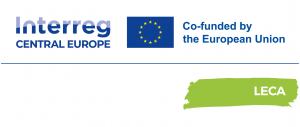“Large carnivores are an indispensable part of Carpathian forest ecosystems. This is where some of the largest populations of lynx, wolves and bears in Europe are found. However, their protection and the resolution of conflicts with humans cannot work in the long term without international cooperation. This is what the LECA project will rely on, which aims to bring a number of effective recommendations and solutions for improving the coexistence of humans and large carnivores in the Carpathian region,” explained the importance of the new project’s coordinator, zoologist Martin Duľa from the Institute of Forest Ecology at Mendel University in Brno.
To maintain viable populations of large carnivores and their long-term coexistence with humans in the Carpathian region, the project is built on three pillars – harmonisation of transboundary monitoring, conflict prevention and poaching prevention. “Our international team will follow the path of consistent and effective monitoring, involving local stakeholders such as hunters, farmers, municipalities and government institutions. This will provide us with up-to-date information on the status of large carnivore populations as well as on the level of conflicts with humans in the cross-border pilot areas of the Carpathian Mountains, which will then help us determine effective measures. We believe that thanks to the involvement of all stakeholder groups and international participation, these measures will improve cooperation and awareness of the issue not only at the local, but also at the regional and transnational level,” Martin Duľa explained.
The team from the Institute of Forest Ecology at Mendel University in Brno has many years of experience in monitoring, research and protection of large carnivores. Over the next three years, he will lead a team of eleven project partners and fifteen associated partners from seven countries. Together they will work to develop coordinated approaches to conflict prevention and conservation of large carnivores in the Carpathians. To this end, NGOs, research organisations, ministries, national parks and universities will be involved.
The three-year LECA project is funded by the EU Interreg Central Europe programme.
Contact for further information. Martin Duľa, Department of Forest Ecology LDF MENDELU, +420 770 137 635, martin.dula@mendelu.cz
Photo: Martin Duľa
More information about the project and its outputs.

More news
-
Mendel University in Brno is the main coordinator of an international project focused on the protection and conservation of narrow-leaved ash (Fraxinus angustifolia), a key tree species in the floodplain forests of Central and Southern Europe.…18. 12. 2025
-
MENDELU coordinates activities for biodiversity conservation and sustainable…
The Faculty of AgriSciences and the Faculty of Forestry and Wood Technology at MENDELU are coordinating an international project in the Amazon that contributes to biodiversity conservation, sustainable management, and improving quality of life. This…16. 12. 2025 -
MENDELU launches High School University, applications open today
At the beginning of 2026, Mendel University in Brno will launch the first year of its High School University for second- and third-year high school students. The aim is to give twenty-five high school students a glimpse into the university…8. 12. 2025 -
The popularity of intergenerational learning is growing in Czechia and Slovakia
In December, Mendel University in Brno and the University of Žilina in Žilina are continuing their intensive cooperation on the development of intergenerational programs, which have been growing in popularity in both countries in recent years. The…4. 12. 2025 -
Testing VR Application at Mendel University: Innovation in Water Education
During the international Thematic Lecture „DIGITALISATION AND NATURE-BASED-SOLUTIONS FOR WASTEWATER TREATMENT“ event for water management experts, organized by the CREA Hydro&Energy cluster, experts tested a new VR application focused on teaching…3. 12. 2025 -
Superworms under the microscope: Scientists at the Faculty of AgriSciences are…
A team of scientists at Mendel University in Brno is investigating how larvae of the darkling beetle species Zophobas morio are able to break down various types of plastics. The aim is to elucidate in detail the biodegradation mechanisms of the…2. 12. 2025 -
Nine hundred Christmas trees from Křtiny will be sent to the Brno Christmas…
For the second year running, the Masaryk Forest Křtiny School Forest Enterprise (ŠLP Křtiny) is continuing its collaboration with the Brno-based non-profit organization Veronica Foundation as part of a project to sell potted Christmas trees. This…19. 11. 2025 -
The scientific team at the Faculty of Horticulture is working to protect the…
The almond orchards in Hustopeče are unique in Europe, but similar to grapevines, the wood of stone fruits, which include almonds, can be attacked by pathogenic fungi. Trees can be protected by following proper agrotechnical practices, especially by…13. 11. 2025 -
The Academic Senate elected Martin Klimánek as the new rector
Today, the Academic Senate elected Martin Klimánek, the current Vice-Rector for Strategy, Sustainability, and Special-Purpose Activities, as the new Rector of Mendel University in Brno. He will replace Jan Mareš at the helm of the university on…3. 11. 2025 -
Plant growth is significantly influenced by volatile substances produced by…
This groundbreaking discovery was made by scientists from Mendel University in Brno and their colleagues from the University of Cologne. The scientific team focused on the role of volatile organic compounds, which serve as signaling molecules…31. 10. 2025